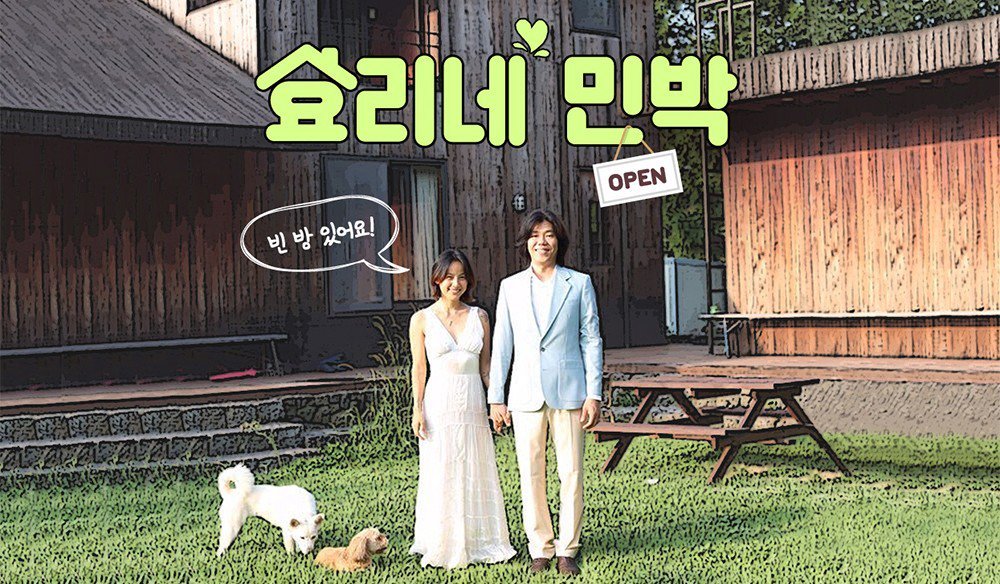
Lee Hyori has been so famous and for so long that it feels weird to explain who she is to people who are either too young or not plugged into Asian pop culture. It’s like explaining what an iPhone is. At any rate, if you don’t know who she is, you can always look her up, so I won’t bother writing about the scale of her fame and success except to just note that she was HUGE and then she suddenly disappeared from the music scene.
It turns out that Hyori ended up getting married to a rock musician Lee Sang-soon, and they soon decamped to Jeju Island, where they lived in seclusion for about four years before agreeing to film Hyori’s Bed & Breakfast last year in 2017. The conceit of the show is that Hyori and Sang-soon welcome pre-approved guests to stay at their house with their eight (then later nine, I think, I can barely keep track because three/four of the dogs look alike) rescued dogs and cats. To help them out, a celebrity or two comes by to help the couple run the B&B, with IU showing up in the first season and then Yoona and Park Bo-geum in the second.
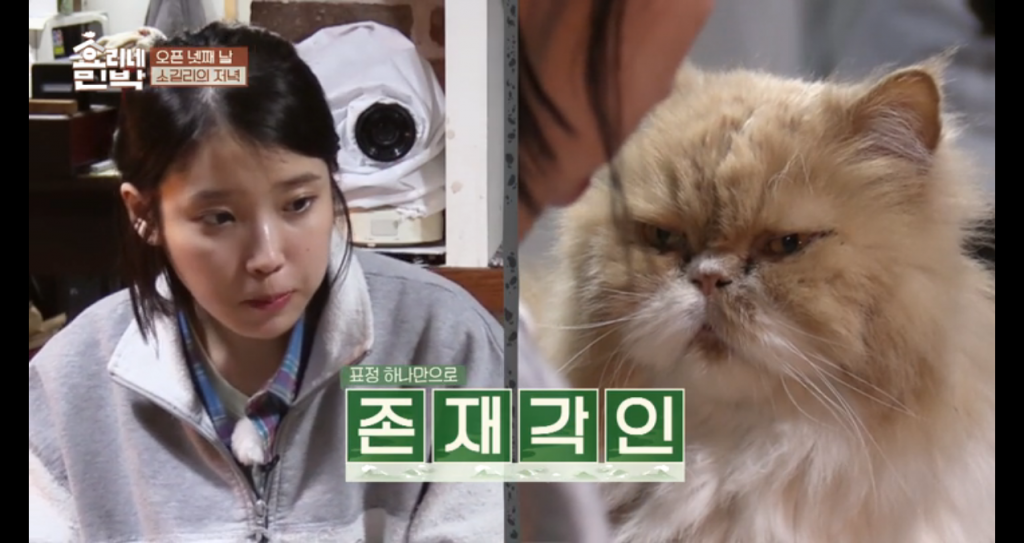
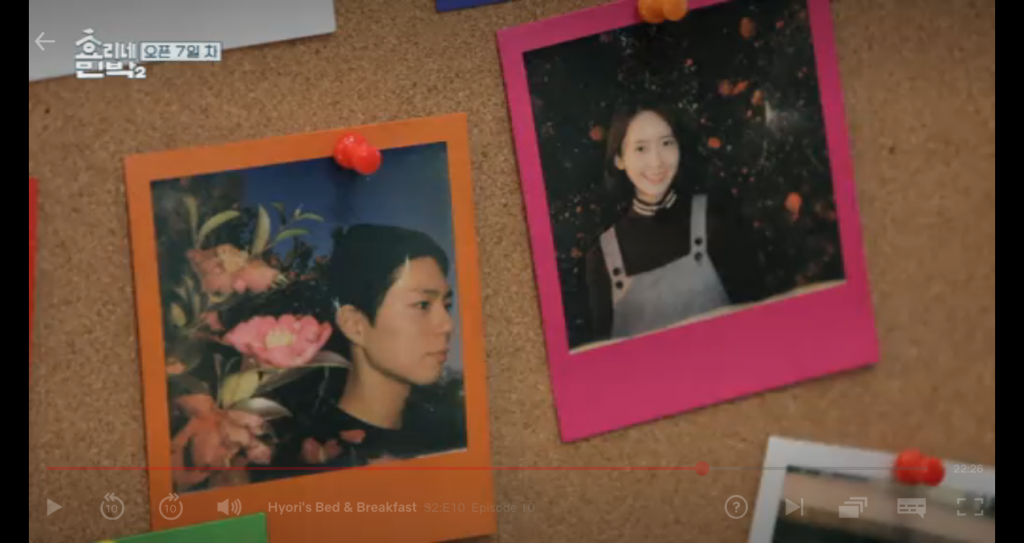
Obviously the selling point of the show is rooted in prurience and novelty. We get to see what Hyori’s home life is like (answer: comfortingly boring) and how the celebrities handle the work (answer: with great sincerity and hard work). There’s hardly any conflict in the show, with the biggest drama mostly centred around household chores (like the toilet getting clogged or sudden rain while the laundry is drying outside) or illnesses like ulcers instead of personality clashes.
Because the casting process was done so well, pretty much all of the guests are very considerate and come to the bed and breakfast with narratives of their own. There’s something about the pacing and mood of the show that feels like the film version of Usagi Drop (which I reviewed here). People arrive at Hyori’s house because they’re curious, of course, but they’re not there to simply gawk at her and her celebrity staff. They have their own goals, whether it’s to go surfing or fishing or hike up some mountains. There’s also a range of guests, from girlfriends out for a last vacation together before university and a father-and-son birdwatching duo to an engaged couple looking to get pre-wedding photos done.
It’s all very slow-paced and idyllic, and the guests are often amazed at how relaxed they feel at Hyori’s house, even though there’s only one bedroom and some of the guests have to sleep in a makeshift room that used to be the office or in a ger or an RV outside. Another feature that has really impressed viewers is the relationship between Hyori and Sang-soon, who share household chores without complaint and have a very loving and humourous relationship.
I understand why the show is such a huge hit; it’s kind of like a curated social media perfect life, which is why I have a lot of respect for Hyori coming out to clarify that the lifestyle she and her husband enjoy isn’t something that is accessible to everyone, and that it often takes a lot of privilege and money to live a life that appears quite simple on the surface.
From her appearance on Radio Star, Hyori said about her wedding at her house after she was hailed for having a “small” wedding:
Lee Hyori revealed that her wedding was not a “small” wedding, but a “super luxurious” one. “My backyard is big, and I paid for the guests’ flights and lodging. Having your wedding at a normal wedding hall is truly a ‘small’ wedding.

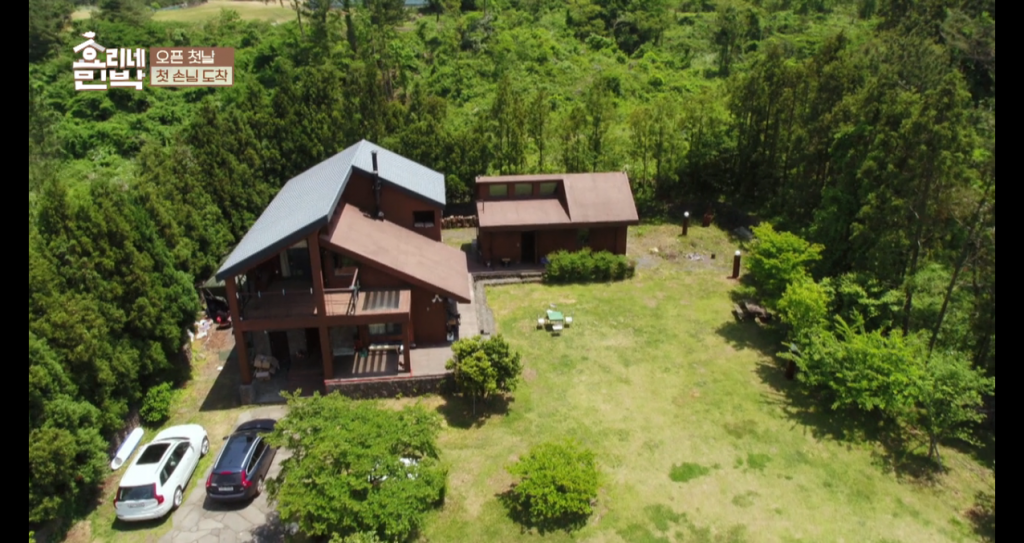
She also points out that praising Sang-soon for his patience isn’t entirely fair to other men.
I heard that a lot of household wives are telling their husbands to do better after watching the program. But my husband doesn’t work. He wakes up late in the morning, drinks some tea, plays the guitar. Living a life like this, he naturally helps out with housework and doesn’t complain. However, other husbands go out to earn money, so you shouldn’t compare.
If you don’t earn money and live a comfortable life, it’s possible to live like this. There are some people who feel a sense of shame watching the show, saying, ‘I’m so jealous of that couple.’ ‘How are they so nice to each other?’ I was actually most worried about that. If a dual career family comes home after getting harassed by their boss at work, there’s no way they’d be able to say anything nice at home. So don’t tell each other, ‘Why can’t you do that for me?’ Instead, try to think of the person who has come home after working all day.
More than anything, that common-sense empathy is what Hyori brings to the show rather than her celebrity. She extends it to everyone who arrives, recognizing in them the things that are important. One of my favourite moments is when Hyori is doing dishes with the eldest sister of a trio of siblings whose mother died while the youngest was only five years old. Hyori compliments the sister on how well she raised her siblings, who are lovely, and the eldest sister says that she has been pretty lucky. Hyori reaches out and pats her on the head, saying that the sister had done a good job with her siblings.
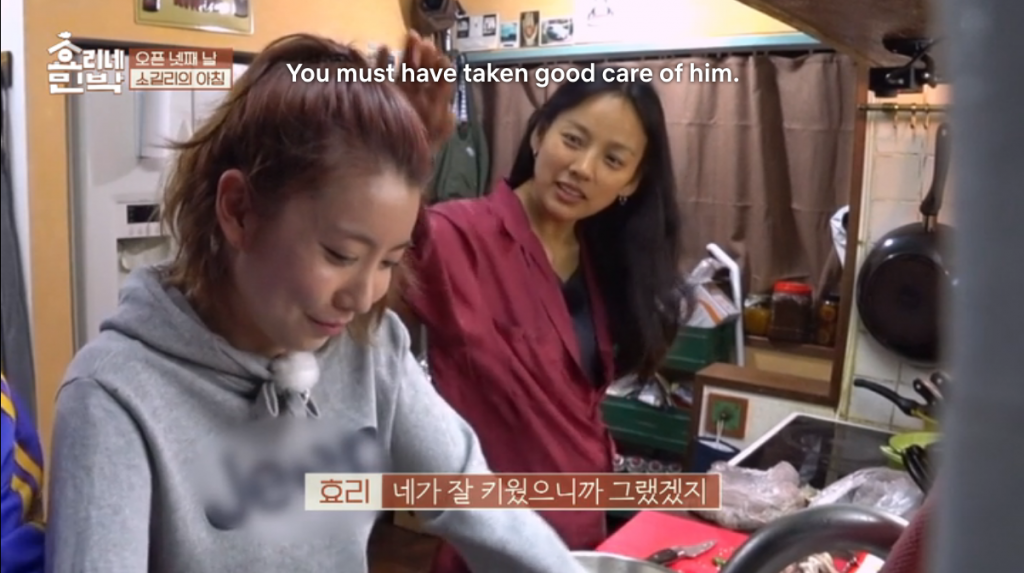
This is such a wonderful moment because it’s not even about Hyori’s celebrity, it’s simply having another person acknowledge what the sister has gone through. I was moved to tears by it because I know how sad/happy it feels when someone else, especially if it’s a person you don’t even know very well, sees and understands what you’ve worked so hard on. Finally, someone has seen you and all your effort.
There are other moments of acknowledgement like this. In the second season, young stars Yoona and Park Bo-geum are holding down the fort when Sang-soon is in Seoul for a show and Hyori is down with a cold. When she’s better, Hyori compliments them: Yoona is so capable and Bo-geum is so kind. The two have the same pleased and slightly shy expressions that the sister who’s raised her siblings has.
It’s kind of funny to think that these two, who have achieved what modern society deems as the pinnacle of success (money and fame), can feel so happy about a simple acknowledgement, but I think it shows us something really important about human nature. Desiring fame is an offshoot of a human desire to be recognized as valuable to others, but from what I’ve seen up close when I was working in the music industry, fame is ultimately hollow because you’re not being acknowledged for yourself. Instead, it’s an image of you that may or may not really exist that is being given love and desire. To be acknowledged and recognized–to be seen–in a real and genuine way becomes worth a lot more.
Hyori clearly understands what fame really means–her escape to Jeju with her husband (who is neither famous nor rich) is pretty much a repudiation of the kind of desperation that often descends on people whose self worth is tied to fame. Good for her, and good on her for being a sort of mentor to IU, Yoona, and to some extent Bo-geum (who doesn’t really stay long enough to get the full Hyori mentoring).
One of the most poignant moments in the show comes early on in Season 1 when a group of girlfriends arrive. Hyori is amazed at their friendship and closeness, which is something that she missed out on at their age.
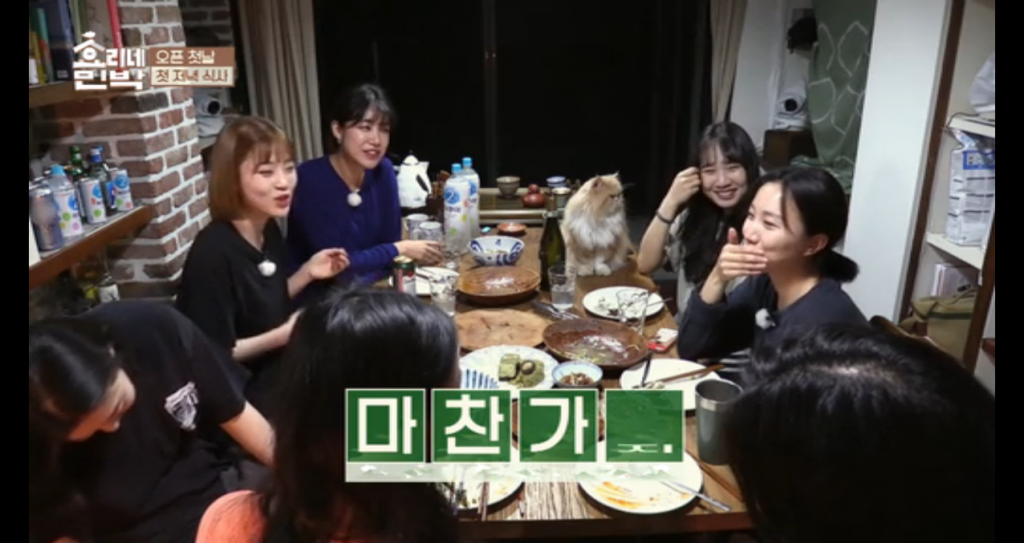
She reflects to her husband: “When I was 25, I was really lonely. I didn’t have very many friends I could chat and share things with. My friends were my manager, my stylist, or someone older.” Later, she says, “What I wish for is to have a friend call me drunk at two in the morning and ask me for a ride.”
Socially awkward IU is kind of the epitome of how strange fame is. Regular people would be thrilled to include her in their circle, but at the same time, they won’t be able to relate to her normally because of her fame. There are lots of moments of IU standing around trying to fit in, but it’s not till later that people just accept her as a person instead of a star.
Although it’s clear that Hyori and Sang-soon appreciated Yoona’s brisk efficiency and Bo-geum’s hardworking nature, it’s hapless IU who they felt most for, especially Hyori. At one point, Hyori asks IU if she has any friends, and IU says that she’s still friends with a couple of middle school classmates, although they’re not as close as they used to be. Hyori quietly observes that their lives are too different now.
It’s the extreme version of leaving your small town to make it in the big city and returning only to find that you no longer have anything in common with people you used to spend so much time with.
With that in mind, it makes sense why Hyori and Sang-soon agreed to do this show. Even though they have what seems like a perfect life, there’s an undercurrent of loneliness to it. Having guests over gives them a chance to connect with people on a level that allows both parties to humanize each other, to give each other companionship, understanding, and acknowledgement. They are allowed to simply see each other for who they really are, and by extension, so are we.

ps. I will say that there is one element of the show that did slightly make me side-eye Hyori and Sang-soon, and that is that they allow their Persian cat Mi-mi (the cat giving the evil eye to IU above and looking for food in the picture with the group of friends) to sit at the table while people are eating. I love cats, and I let mine sleep in my bed, but I do draw the line at cats sitting at the table and getting their hair all over the food.



